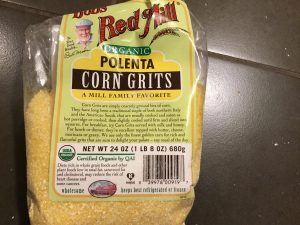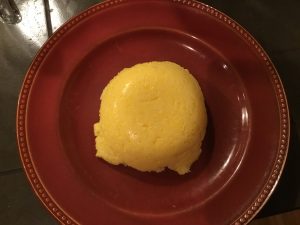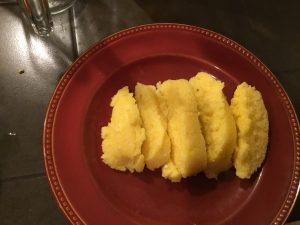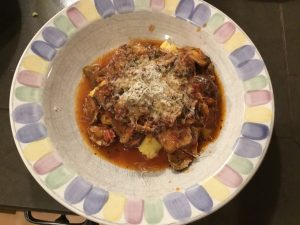Between 4 and 10% of people with Type 1 Diabetes also develop Celiac Disease
Celiac disease is fairly common in the general public. Just under 1% of people in the US and Western Europe have Celiac Disease. Far more people with Type 1 Diabetes develop the disease.
If you have Celiac Disease, you MUST avoid foods with Gluten
Gluten is a protein in Wheat, Rye and Barley. Oats often contain some gluten, because of contamination. Oats may be grown in a field next to wheat, rye or barley, or trucked to market in a truck that has also carried wheat rye or barley. You can buy certified gluten free oats. Even a little contamination with gluten can cause a person with Celiac Disease to become very ill.
Avoid contamination with gluten at home by separating foods with gluten from non-gluten foods
- Use a separate cutting board for gluten free breads and other baked goods.
- Use a separate toaster for gluten free bread.
- Clean your counters with soap and water in between preparing gluten free and gluten containing foods.
- Put gluten free breads and tortillas in a different serving container than that for those that have gluten in them.
- Check out the celiac disease foundation for more information on eating with celiac disease: https://celiac.org/
Using “Regular Foods” to replace gluten containing grains
You don’t have to spend a lot of money on special gluten free products to have a healthy and delicious diet when you have celiac disease. A great substitute for pasta is polenta. Polenta is typically made from coursely ground corn meal (a little more course than the corn meal you use to make corn bread). I like to use whole grain Polenta (my favorite is the Bob’s Red Mill brand “Polenta Corn Grits”).
You can also buy premade polenta at your grocery store. It comes in a plastic tube and can be sliced and used just like the polenta you make.
Check out this website for a primer on polenta: https://www.thekitchn.com/whats-the-difference-between-cornmeal-and-polenta-word-of-mouth-211404
Polenta with Maranara Sauce for Two
- Make your favorite maranara or spaghetti sauce. (I like to keep some in my freezer for quick meals)
- Prepare polenta (or use pre-made):
- 1/2 cup polenta + 1 1/2 cups water (it takes less time to make small amounts than what is stated on the package)
- Bring to a boil and stir frequently until very stiff. Approximately 20 minutes
- Heat marinara sauce and make your salad or other veggie while cooking polenta
- When polenta is very stiff and coming away from side of pan, put into a greased bowl and let sit for about 10 minutes.
- Turn bowl over on a plate, and cut polenta into slices.
- Place half of the polenta in each bowl or plate.
- 1/2 cup polenta + 1 1/2 cups water (it takes less time to make small amounts than what is stated on the package)
- Top with maranara or spaghettie sauce and a sprinkle of parmesan cheese and enjoy!
Each serving of polenta provides 130 Calories, 27 gm carbohydrate, 2 gm fiber, 3 gm protein and 0.5 gm fat. Nutritional analysis of marinara or spaghetti sauce with meat varies with recipes, but typically provides about 200 calories and 15-20 gm carbohydrates per cup.




